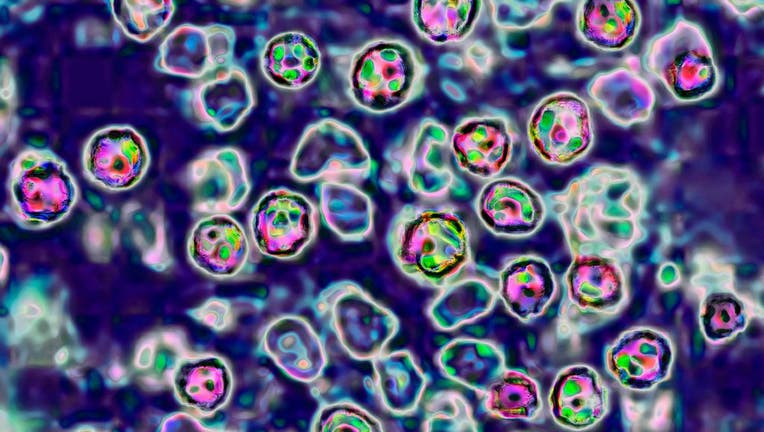2 new cases of measles reported in metro Atlanta

The measles virus, paramyxoviridae from the Morbillivirus family, transmission microscopy view. (Photo by: BSIP/Universal Images Group via Getty Images)
ATLANTA - The Georgia Department of Public Health (DPH) has confirmed two new cases of measles in unvaccinated metro Atlanta residents. These individuals are family members of the previously confirmed case from January 2025.
PREVIOUS: First case of measles in the state for the year reported, Georgia DPH says
What we know:
Health officials have identified and contacted individuals who may have been exposed to the virus through interactions with the infected family. Those at risk have been provided with either the measles vaccine or antibodies to help reduce their chances of developing the disease. As of now, no secondary cases have been reported outside of the family.
The backstory:
Measles is a highly contagious viral infection that spreads through respiratory droplets when an infected person coughs or sneezes. While the disease was once considered eliminated in the United States, a decline in vaccination rates has contributed to sporadic outbreaks in recent years.
The measles, mumps, and rubella (MMR) vaccine is highly effective at preventing measles. According to the Centers for Disease Control and Prevention (CDC), children should receive their first MMR vaccine dose between 12-15 months of age and a second dose between 4-6 years old. More than 95% of individuals who receive one dose will develop immunity to all three viruses, and a second dose boosts protection to 98%.
There were 6 reported cases in Georgia in 2024.
Why you should care:
Measles is not just a childhood illness—it can cause severe complications, including pneumonia, brain inflammation (encephalitis), and even death, especially in unvaccinated individuals. The resurgence of measles cases in Georgia highlights the importance of vaccination in preventing further spread.
While no additional cases outside of the family have been confirmed, public health officials continue to monitor for potential secondary infections. Residents are urged to check their vaccination status and consult healthcare providers if they are unsure of their immunity.
What's next:
The Georgia DPH and CDC will continue to track and respond to this outbreak. Health officials recommend that anyone who has not received the MMR vaccine get vaccinated as soon as possible to prevent further transmission.
For those who may have been exposed or are at risk, early symptom recognition is crucial. Measles symptoms typically begin with fever, cough, runny nose, and red eyes, followed by the characteristic red rash that spreads from the face to the rest of the body. If symptoms appear, individuals should seek medical attention immediately and avoid public spaces to prevent further spread.

